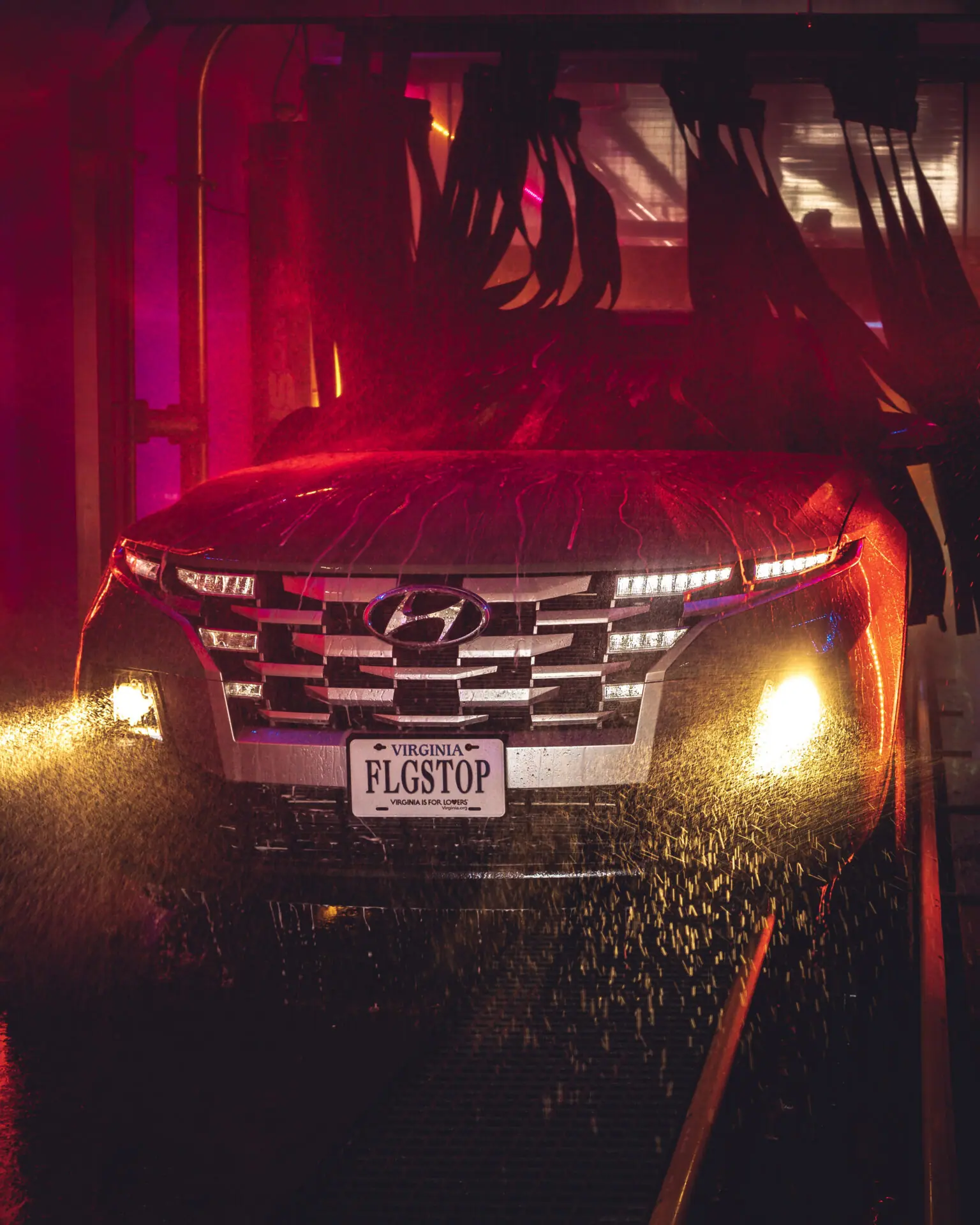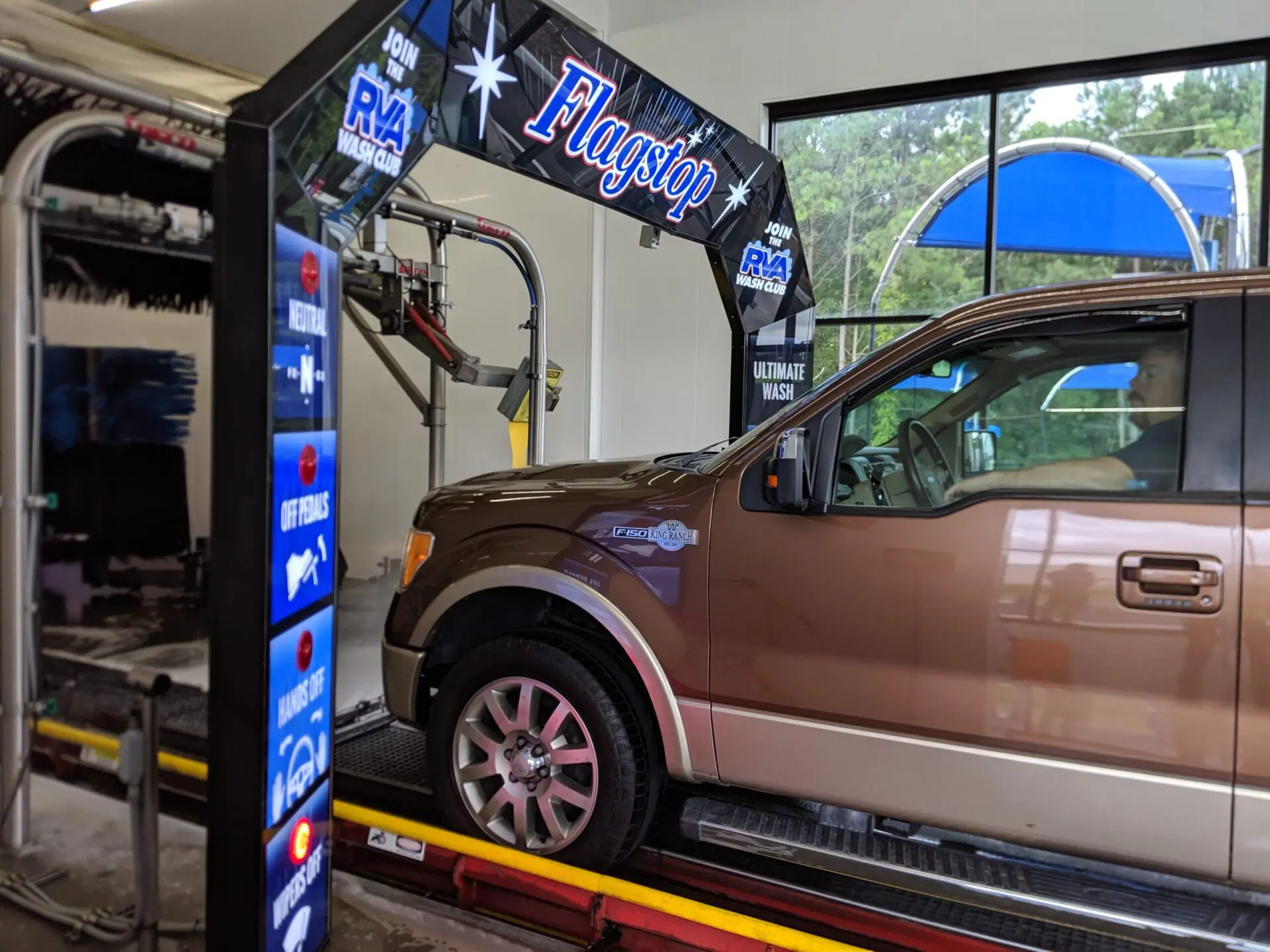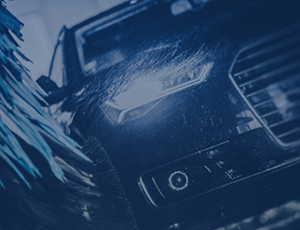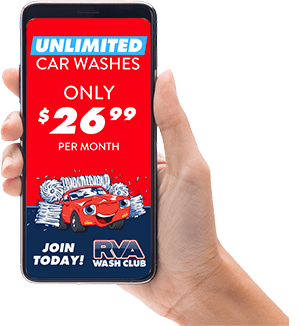Cleaning a car at home with average, store-bought car wash soap isn’t actually the most environmentally friendly option. After all, once you rinse those suds off, where are they going? The grass? The sidewalk cracks? The storm drain? The groundwater?
Water Usage and Car Wash Products
Water is actually used at a much higher rate when hose washing. Yet water conservation is only the beginning. Washing at home or in a parking lot introduces harmful cleaning chemicals and phosphates from road film into storm drains that are intended to deliver rain run-off into rivers and streams. This impacts the plants and animal life in that ecosystem. Professional car wash companies empty excess waste into the sewer where it belongs.
When it comes to automatic washes, chemistry and pressure is favored over volume. Car washes use very targeted applicator systems with carefully monitored water usage as opposed to general home car washing methods. When your next door neighbor or enthusiastic youth group fundraiser wash a car, they usually use the hose. Hoses do move a lot of water, unfortunately that water comes out without a lot of pressure, and therefore without a lot of cleaning potential. Automatic car washes use minimal water but excel the pressure to get the most cleaning power from the water being used.
Mixing hose water with a car wash soap in buckets does helps conserve water, but even then the final rinse can use up to 50 or even 150 gallons very quickly. The water at car washes is mixed with cleaning solutions including presoak, body soap, sealant, and a spot free rinse aid. Since the chemistry is right, less water is needed to get a better clean at automatic washes.
Car washes also utilize high pressure rinse arches, allowing a small amount of water to hit the car with enough force to rinse off lingering grime or detergents without causing damage or wasting water. In the end, compared to that 100 gallons per car, an automatic wash can use as little as 50 total gallons, and of that 50 gallons, most isn’t actually expended.
The water at automatic car washes is largely reclaimed. Reclaiming water might sound odd, and make one think “who wants their car washed with water that’s already got dirt and sand in it from other cars?” In reality reclaimed water is grit-free and intensely filtered to remove foreign particles and contaminants . Car washes use water reclamation systems in order to cut down on the amount of new water they buy from the city each time a car is washed. The water is treated with detergents used to break up dirt and grime, and then sucked back up into a system that filters out heavy compounds and skims off light chemicals, leaving the water clean and ready for reuse.
Reverse osmosis systems add extra purification to the process, distilling water until it is even cleaner than your average tap water for a truly spot-free rinse. Modern reclaim and RO systems actually have automatic tunnel car washes using as little as 15 fresh gallons of water per car—less than two toilet flushes in most of the country.
So to sum it up, it is better for the environment, your vehicle, and your budget to use automatic car washes. At Flagstop Car Wash we use only the best equipment and products to ensure safety, clean water and minimal impact on the environment. Stop by one of our convenient locations and you and your vehicle will be feeling good knowing you’re helping to conserve water, while getting your vehicle sparkling clean.
 RVA Wash Club Signup
RVA Wash Club Signup



